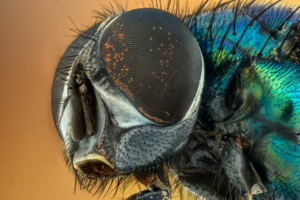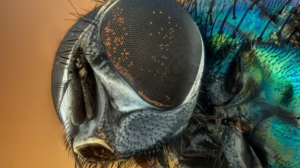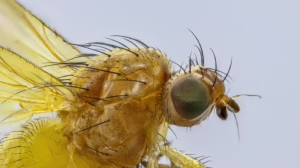Doing Well in Biology: Insights from Top Performers
Biology is a captivating field that explores the complexities of life, from the smallest microorganisms to the largest ecosystems. However, excelling in biology isn’t just about absorbing facts; it involves understanding concepts, developing critical thinking skills, and applying knowledge to real-world situations. In this article, we delve into the strategies and insights gleaned from top-performing students and educators in biology.
Understanding the Foundations
1. Building Core Knowledge
Successful biology students emphasize the importance of mastering foundational concepts. A solid grasp of principles such as cell biology, genetics, and evolution is crucial.
Tip: Focus on understanding rather than rote memorization. For instance, when studying cellular respiration, comprehend how it fits into the broader context of metabolism and energy flow in ecosystems.
2. Engaging with the Material
Engagement deepens understanding. Top students recommend diverse learning techniques like visual aids, interactive simulations, and group discussions. Educators also encourage using technology to visualize biological processes.
Example: Using animation software to explore the process of mitosis can make abstract concepts more tangible.
Effective Study Techniques
3. Active Learning Strategies
Active learning strategies, such as teaching concepts back to peers or applying knowledge through problem-solving, enhance retention. Research supports that active involvement in learning results in superior understanding and recall of material.
Method: Create study groups where each member teaches a specific topic. This encourages not only mastery of the subject but also the development of communication skills.
4. The Power of Concept Mapping
Concept mapping is a visual tool that helps organize and represent knowledge. It allows students to see relationships between biological concepts, which is especially important in a field rich with interconnected ideas.
Advice: After completing a chapter, create a concept map that summarizes key points. This will facilitate connections between different areas of biology, such as linking genetics to evolution.
Time Management and Organization
5. Strategic Study Schedules
Effective time management is essential for success in biology. Top performers create structured study schedules that allocate ample time for reviewing material, conducting experiments, and engaging in collaborative study sessions.
Plan: Use a calendar to set aside specific times each week dedicated to biology study, ensuring consistency and progress.
6. Keeping Organized Notes
Organized notes are a hallmark of successful students. Digital tools like OneNote or Notion can streamline note-taking, making it easy to categorize information by topic.
Tip: Utilize Cornell notes to separate main ideas, details, and summaries, making review sessions more efficient and focused on key concepts.
Practical Application of Knowledge
7. Hands-On Laboratory Experience
Laboratory work is fundamental in biology. Practical experience consolidates theoretical knowledge, allowing students to observe biological processes firsthand.
Insight: Engage actively during lab sessions—ask questions, participate in discussions, and take detailed notes. This experiential learning complements textbook study.
8. Pursuing Field Work
Field experiences enhance understanding of ecological and environmental biology. Top students often seek internships or volunteer opportunities in labs or conservation projects, which broaden their perspectives and deepen their knowledge base.
Experience: Participating in a local conservation project can provide insights into ecosystem dynamics and present opportunities for hands-on research.
Developing Critical Thinking Skills
9. Analytical Thinking
Biology isn’t just about facts; it’s about interpreting data and forming conclusions. Top students often engage with scientific literature and learn to analyze experiments critically.
Exercise: Review a recent research paper and identify the hypothesis, methods, results, and conclusions. Discuss these with peers to enhance understanding.
10. Problem-Solving Approaches
Real-life scenarios are often the best way to develop problem-solving skills. Case studies in biology stimulate critical thinking and allow students to apply their knowledge to novel situations.
Challenge: Tackle hypothetical scenarios, such as the effects of pollution on local ecosystems, and propose research methods to investigate the issue.
Collaboration and Community
11. Study Groups and Peer Learning
Collaboration with peers fosters a deeper understanding of biological concepts. Top performers often study in groups, allowing for a diversity of perspectives and shared resources.
Strategy: Set up regular study sessions, where each student can present a topic they feel confident in, reinforcing their understanding while aiding others.
12. Involvement in Biology Clubs
Joining biology clubs or organizations provides opportunities for networking, mentorship, and collaborative projects. Participation can further enrich academic and social aspects of studying biology.
Benefit: Engaging in club activities may expose students to guest speakers and workshops, which can significantly deepen their understanding of contemporary biological issues.
Resources for Success
13. Utilizing Online Platforms
In the digital age, numerous online resources can aid in mastering biology. Websites like Khan Academy, Coursera, and YouTube offer lectures and tutorials from experts in the field.
Recommendation: Use additional video resources to clarify complex topics. Visual aids can be particularly effective in subjects such as human anatomy or plant biology.
14. Reference Materials and Textbooks
While technology is useful, classic textbooks and reference materials remain invaluable tools for study. Leading students suggest using a variety of textbooks to gain different viewpoints on biological theories and practices.
Guideline: Ensure your reference materials are up-to-date to reflect recent discoveries and advancements in the field.
Staying Motivated and Resilient
15. Setting Goals
Effective biology students set specific, measurable goals. These goals can range from daily study objectives to long-term aspirations, such as pursuing a career in a specific area of biology.
Action: Document your goals and regularly assess your progress. This habit cultivates motivation and accountability.
16. Embracing Challenges
Biology can be a challenging field, and top performers emphasize the importance of resilience. Viewing difficulties as learning opportunities fosters a growth mindset that is essential in academia.
Mindset: Reflect on setbacks, analyze what went wrong, and strategize on how to overcome such challenges in the future.
Conclusion
Excelling in biology requires a multifaceted approach combining a solid understanding of foundational concepts, effective study techniques, and practical experience. Insights from top performers illustrate that success in this field is not merely about memorizing information but about engaging deeply with the material, applying knowledge, and fostering critical thinking and resilience. In pursuing biology, students can unlock the mysteries of life and contribute to scientific advancements that shape our understanding of the world.
Final Thoughts
As you embark on or continue your journey in biology, remember that curiosity and perseverance are your greatest allies. Embrace the challenges, seek out resources, and cultivate a love for learning. With dedication and the right strategies, you too can achieve excellence in biology.


























Add Comment